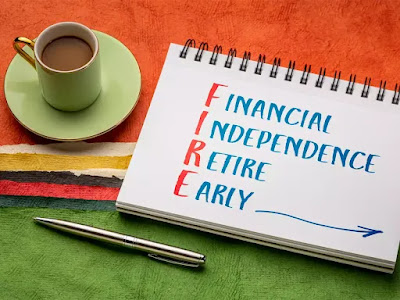Retiring Early: A Journey to Financial Freedom and Fulfillment
Introduction to Early Retirement
Imagine waking up every morning with the freedom to choose how you spend your day, without the constraints of a traditional 9-to-5 job. Early retirement offers just that – a chance to break free from the conventional work routine and embrace a life of leisure and fulfillment.
Benefits of Retiring Early
Financial Independence
One of the primary benefits of early retirement is achieving financial independence. By strategically managing your finances, you can create a sustainable income that supports your desired lifestyle without being tied to a job.
Improved Quality of Life
Retiring early allows individuals to enjoy their peak health years and pursue activities they are passionate about, leading to a significant improvement in overall quality of life.
Challenges and Considerations
Financial Planning
While early retirement is appealing, it comes with the challenge of meticulous financial planning. Proper budgeting and investment strategies are crucial to sustaining a comfortable lifestyle without a regular paycheck.
Health Considerations
Early retirees must consider the potential impact on health insurance and healthcare costs. Planning for unexpected medical expenses becomes a crucial aspect of the early retirement journey.
Steps to Retire Early
Financial Independence
Achieving financial independence involves building a substantial savings portfolio and minimizing debt. This financial cushion provides the necessary support for the early retirement phase.
Investment Strategies
Smart investment decisions play a pivotal role in early retirement success. Diversifying investments and understanding risk tolerance are key factors in creating a robust financial portfolio.
Side Income Opportunities
Exploring side income options, such as freelancing or part-time work in retirement, can provide an additional income stream and contribute to a more secure financial future.
Lifestyle Changes After Early Retirement
The transition from a structured work environment to a more flexible lifestyle requires adjustment. Embracing new routines, hobbies, and social activities becomes essential for a fulfilling retired life.
Common Misconceptions About Early Retirement
It's Only for the Wealthy
Contrary to popular belief, early retirement is not exclusive to the wealthy. With careful financial planning and disciplined saving, individuals from various income levels can achieve early retirement.
Boredom and Lack of Purpose
Another misconception is the assumption that early retirees face boredom and a lack of purpose. In reality, early retirement provides an opportunity to explore passions and hobbies, fostering personal growth and fulfillment.
Success Stories of Early Retirees
Real-life success stories of individuals who retired early and transformed their lives inspire others to take the leap towards financial freedom.
Building a Support System for Early Retirement
Having a supportive network of friends, family, and like-minded individuals can provide emotional and practical assistance during the early retirement journey.
Risks and Pitfalls to Avoid
Understanding the risks associated with early retirement, such as market fluctuations and unexpected expenses, is crucial to mitigating potential pitfalls.
The Role of Passion and Hobbies in Early Retirement
Engaging in meaningful activities and pursuing passions post-retirement contributes to a sense of purpose and satisfaction.
Creating a Sustainable Early Retirement Plan
Regular Financial Checkups
Periodic reviews of financial plans ensure adaptability to changing circumstances and help in making informed decisions.
Adapting to Changes
Flexibility is key in early retirement. Being open to adapting plans based on evolving needs and circumstances ensures continued success.
Impact on Mental and Emotional Well-being
Early retirement can positively impact mental and emotional well-being, allowing individuals to prioritize self-care and personal fulfillment.
How Early Retirement Affects Relationships
Understanding the dynamics of relationships during retirement helps individuals navigate the changes and strengthen connections with loved ones.
FAQs on Early Retirement
What age is considered early retirement?
Early retirement typically refers to retiring before the age of 65. However, the definition may vary based on individual circumstances and goals.
Can anyone retire early?
While early retirement is achievable for many, it requires careful financial planning, discipline, and a realistic assessment of individual circumstances.
How much money do I need to retire early?
The amount varies based on lifestyle choices and expenses. A comprehensive financial plan can determine the specific financial goal for early retirement.
Is early retirement risky?
Like any major life decision, early retirement comes with risks. However, with proper planning and risk management, these risks can be minimized.
What are some alternative terms for early retirement?
Alternative terms include "financial independence retire early" (FIRE) and "voluntary simplicity," emphasizing a deliberate choice to live with less and prioritize personal fulfillment.
Conclusion
Embarking on the journey of early retirement is a life-changing decision that requires careful planning, adaptability, and a commitment to financial independence. By understanding the benefits, challenges, and steps involved, individuals can pave the way to a fulfilling and enjoyable retired life.
ReplyForward |




Comments
Post a Comment